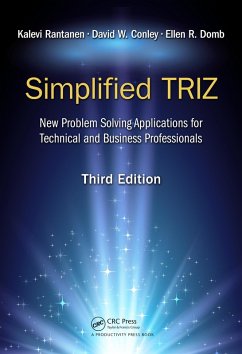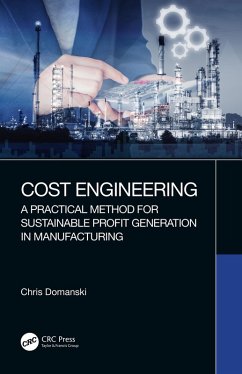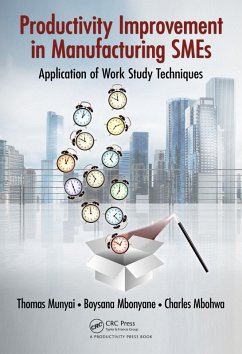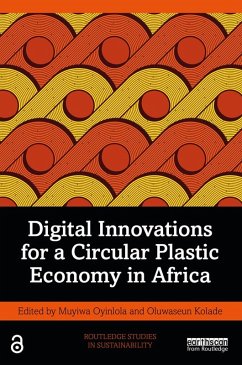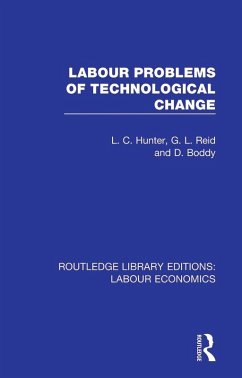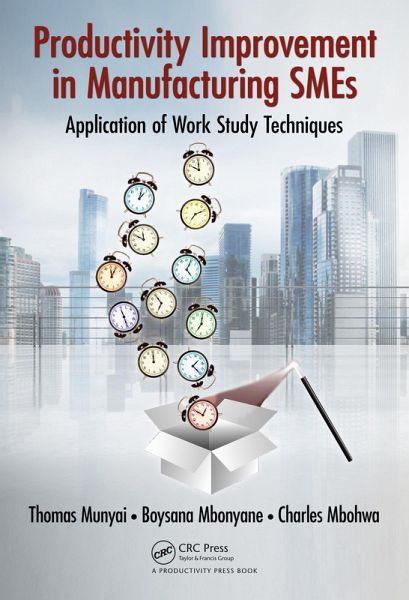
Productivity Improvement in Manufacturing SMEs (eBook, PDF)
Application of Work Study

PAYBACK Punkte
16 °P sammeln!
This book focuses on the application of workstudy in productivity of manufacturing SMEs locally and abroad and also explores various industrial problems which face manufacturing SMEs in developing and underdeveloped countries in the rest of the world. Low productivity is currently a serious challenge facing manufacturing SMEs, where these SMEs are operating below expected production output levels which makes it difficult for them to compete in the global market. SMEs are the engine drivers of economic growth, one of which is manufacturing.The challenge is that government from various countries...
This book focuses on the application of workstudy in productivity of manufacturing SMEs locally and abroad and also explores various industrial problems which face manufacturing SMEs in developing and underdeveloped countries in the rest of the world. Low productivity is currently a serious challenge facing manufacturing SMEs, where these SMEs are operating below expected production output levels which makes it difficult for them to compete in the global market. SMEs are the engine drivers of economic growth, one of which is manufacturing.
The challenge is that government from various countries in developing and underdeveloped countries, mandated agencies in their respective areas, to ensure that there is economic progress for these SMEs, but productivity remains low in the manufacturing SMEs. When SMEs do not perform well, productivity of manufacturing SMEs declines and unemployment increases. Thus, an increase in unemployment results in a drop of GDP in the country and can become a global and economic crisis. This book describes a process which enables the reader to use effective knowledge that addresses problems facing the productivity of manufacturing SMEs such as work study tools and case studies and provides solutions and applications to improve the running of the manufacturing SMEs in growing their productivity.
The challenge is that government from various countries in developing and underdeveloped countries, mandated agencies in their respective areas, to ensure that there is economic progress for these SMEs, but productivity remains low in the manufacturing SMEs. When SMEs do not perform well, productivity of manufacturing SMEs declines and unemployment increases. Thus, an increase in unemployment results in a drop of GDP in the country and can become a global and economic crisis. This book describes a process which enables the reader to use effective knowledge that addresses problems facing the productivity of manufacturing SMEs such as work study tools and case studies and provides solutions and applications to improve the running of the manufacturing SMEs in growing their productivity.
Dieser Download kann aus rechtlichen Gründen nur mit Rechnungsadresse in A, B, BG, CY, CZ, D, DK, EW, E, FIN, F, GR, HR, H, IRL, I, LT, L, LR, M, NL, PL, P, R, S, SLO, SK ausgeliefert werden.




